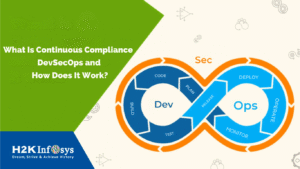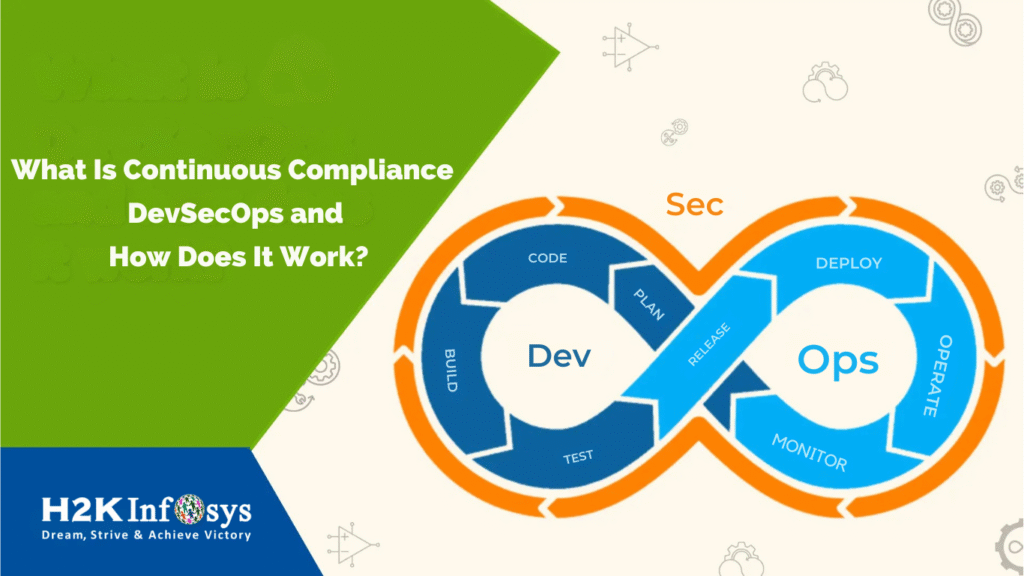Introduction
in today’s digital economy, security is no longer an afterthought. Every organization, from small startups to global enterprises, relies on secure software delivery pipelines. By 2025, cyberattacks are projected to cost businesses more than $10.5 trillion annually. This reality pushes organizations to adopt DevSecOps Tools that merge development, security, and operations from the start.
For professionals, this means one thing: mastering the right tools is no longer optional it’s a career necessity. If you’re preparing for Best DevSecOps certification, investing in DevSecOps training, or exploring AWS DevSecOps certification, these tools will be your foundation.
In this blog, we’ll explore the Top 10 DevSecOps Tools that are shaping the industry in 2025, with real-world examples, practical applications, and insights into why they matter for your career.
1. GitLab – A Unified DevSecOps Platform
GitLab has evolved into more than a version control system. In 2025, it’s one of the leading DevSecOps Tools, offering a complete ecosystem for CI/CD pipelines, vulnerability management, and compliance tracking.
Key Features:
- Built-in static and dynamic security testing.
- Policy enforcement for secure code commits.
- Integration with cloud-native environments like AWS and Kubernetes.
Career Insight: Professionals pursuing DevSecOps training and certification often start with GitLab because it provides an all-in-one platform to practice secure development workflows.
2. Jenkins with Security Plugins
Jenkins remains a favorite automation server, but in 2025, its power lies in its DevSecOps Tools ecosystem of plugins. Tools like OWASP Dependency-Check and SonarQube integrate directly into Jenkins pipelines, making security checks automated and continuous.
Why It Matters:
Organizations need fast, secure releases. With Jenkins security plugins, teams can prevent vulnerabilities before deployment.
Pro Tip: If you’re preparing for AWS DevSecOps certification, practice automating security testing with Jenkins pipelines hosted on AWS.
3. Aqua Security – Container and Cloud Security
As organizations shift workloads to cloud-native architectures, container security becomes crucial. Aqua Security is one of the DevSecOps Tools leading this transformation in 2025.
Key Capabilities:
- Scans container images for vulnerabilities.
- Monitors runtime for anomalies.
- Ensures compliance with security policies.
Real-World Example: A financial institution reduced 40% of its container-related risks by integrating Aqua into its DevSecOps pipeline.
4. HashiCorp Vault – Secrets Management
Secrets management is a cornerstone of DevSecOps. HashiCorp Vault helps organizations securely manage tokens, passwords, certificates, and encryption keys.
Why It’s Critical:
Exposed secrets are a major attack vector. Vault’s dynamic secrets and encryption-as-a-service make it a vital DevSecOps Tool for 2025.
Career Angle: Many DevSecOps courses include Vault modules because enterprises demand engineers who can implement secrets management in production.
5. Snyk – Developer-Friendly Security
Snyk bridges the gap between developers and security teams. It empowers developers to find and fix vulnerabilities early in the coding process.
Core Strengths:
- Scans open-source dependencies.
- Integrates directly with GitHub, GitLab, and IDEs.
- Provides remediation guidance.
Industry Statistic: According to Snyk’s 2024 report, organizations that integrated developer-first tools reduced mean time to remediate vulnerabilities by 60%.
For those seeking Dest DevSecOps certification, Snyk is often highlighted as one of the most practical tools for hands-on labs.
6. SonarQube – Continuous Code Quality and Security
SonarQube remains indispensable for static code analysis in 2025. It ensures code quality, reduces technical debt, and identifies vulnerabilities during development.
Highlights:
- Multi-language support.
- Integration with Jenkins and GitLab.
- Security hotspot detection.
Application in Training: When you enroll in DevSecOps training, SonarQube often forms part of real-world exercises where learners integrate it into CI/CD pipelines.
7. Prisma Cloud (by Palo Alto Networks)
Prisma Cloud is one of the most comprehensive DevSecOps Tools for cloud security in 2025. It provides visibility and control across AWS, Azure, and Google Cloud environments.
Features:
- Infrastructure-as-Code (IaC) scanning.
- Compliance monitoring.
- Real-time threat detection in cloud environments.
AWS Certification Link: Students preparing for AWS DevSecOps certification use Prisma Cloud to understand how security integrates into multi-cloud environments.
8. OWASP ZAP – Dynamic Application Security Testing
The OWASP Zed Attack Proxy (ZAP) is a free and open-source DAST tool that continues to dominate in 2025.
Key Use Cases:
- Identifying runtime vulnerabilities.
- Automating penetration testing in CI/CD pipelines.
- Scanning APIs for security flaws.
Why It’s a Must-Learn: Its open-source nature makes it accessible for learners in a DevSecOps course who want hands-on security testing practice without high costs.
9. Anchore – Container Image Security
Anchore specializes in analyzing container images to detect vulnerabilities and enforce compliance.
Benefits in 2025:
- Policy-based image scanning.
- Integration with Kubernetes environments.
- Support for SBOM (Software Bill of Materials) compliance.
Practical Example: Many e-commerce companies use Anchore to ensure their microservices remain compliant before deployment.
10. Terraform with Sentinel Policies
Infrastructure as Code (IaC) is core to DevSecOps. Terraform, combined with Sentinel policies, ensures that infrastructure provisioning follows strict security rules.
Capabilities:
- Automates secure infrastructure deployment.
- Prevents misconfigurations that could lead to breaches.
- Integrates directly with cloud providers.
Career Relevance: IaC security is one of the hottest skills in demand. Mastering Terraform as part of your DevSecOps training and certification will future-proof your career.
Why These DevSecOps Tools Matter for Your Career
Employers in 2025 are no longer satisfied with developers or operations engineers who work in silos. They want professionals who can secure every stage of the software lifecycle.
Here’s why:
- Talent Demand: According to Cybersecurity Ventures, there will be 3.5 million unfilled cybersecurity jobs in 2025. DevSecOps skills directly address this gap.
- Higher Salaries: Professionals with Dest DevSecOps certification or AWS DevSecOps certification can earn 25-30% higher salaries compared to traditional DevOps engineers.
- Industry Trust: Organizations in healthcare, finance, and retail rely heavily on secure pipelines. Mastering these DevSecOps Tools makes you the go-to expert.
How to Learn DevSecOps Tools Effectively
Step 1: Start with a DevSecOps Course
Enroll in structured programs that provide guided learning on GitLab, Jenkins, Vault, and other tools.
Step 2: Hands-On Practice
Use free tiers from AWS, GitHub, and Docker Hub to build real pipelines.
Step 3: Certification Path
Pursue Dest DevSecOps certification or AWS DevSecOps certification to validate your skills. Employers often shortlist certified candidates first.
Step 4: Continuous Learning
Stay updated with tool updates and community best practices. For example, follow the OWASP and CNCF communities.
Practical Example: Secure CI/CD Pipeline
Here’s a simplified workflow that integrates several DevSecOps Tools:
stages:
- build
- test
- security
- deploy
build:
script: mvn clean install
test:
script: mvn test
security:
script:
- snyk test
- sonar-scanner
- zap-cli quick-scan http://localhost:8080
deploy:
script: kubectl apply -f deployment.yaml
This pipeline:
- Builds and tests code.
- Runs Snyk, SonarQube, and OWASP ZAP for security.
- Deploys securely to Kubernetes.
Key Takeaways
- DevSecOps Tools are not optional they are mandatory for secure software delivery in 2025.
- Top tools include GitLab, Jenkins, Aqua Security, Vault, Snyk, SonarQube, Prisma Cloud, OWASP ZAP, Anchore, and Terraform.
- Mastering these tools prepares you for DevSecOps training and certification, including AWS DevSecOps certification.
- Employers prefer professionals with Dest DevSecOps certification as it validates both technical and security expertise.
Conclusion: Secure Your Future with DevSecOps Training
2025 belongs to professionals who can integrate security into every phase of development. Mastering the top DevSecOps Tools gives you a competitive advantage and prepares you for certifications that employers trust.
Enroll today with H2K Infosys DevSecOps courses and gain the hands-on skills you need to accelerate your career. Secure every line of code, secure your future.
























